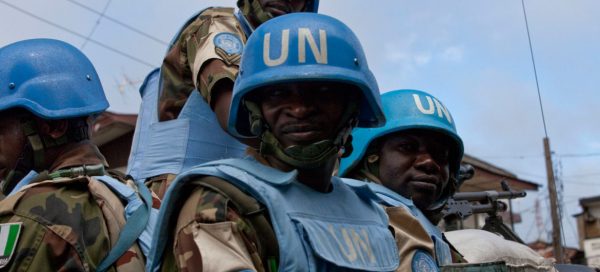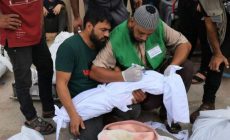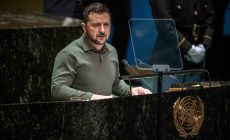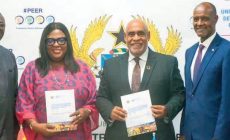At a ceremony in Monrovia attended by President George Weah, United Nations Deputy Secretary-General Amina J. Mohammed lauded the accomplishments of the United Nations Mission in Liberia (UNMIL).
She pointed out that the peacekeepers leave behind a country that has great potential for lasting peace and stability.
“UNMIL helped to disarm more than 100,000 combatants, and protected millions of civilians; helped to rebuild the police, the security services and other institutions; facilitated the provision of humanitarian aid; and supported the development of national capacity to promote and protect human rights.”
The Deputy Secretary-General lauded progress while acknowledging the remaining challenges. “Peace will not last without sustainable development; and development gains will be at risk without sustained peace. Many Liberians are still waiting for the anticipated dividends of peace. Some of the root causes of conflict remain to be addressed, including poverty, youth unemployment, illiteracy and lack of infrastructure. We need to give Liberians back their dignity, dreams and faith in a better future,” Ms. Mohammed said.
She paid special tribute to the 202 peacekeepers who lost their lives in pursuit of peace in Liberia. “Today, we remember their sacrifice.”
The event was held at Monrovia’s Executive Pavilion and was attended by top government officials, representatives of civil society, members of the diplomatic community, and UN officials.
On behalf of the Liberian authorities, President Weah said: “UN has positively impacted the lives of Liberians as well as every fabric of the Liberian Society since its arrival in 2003.” He acknowledged the hope the United Nations has given Liberians adding, “Liberia has to protect and sustain the peace”. He expressed his commitment towards ensuring it happens.
At the ceremony, Deputy Secretary-General Mohammed was accompanied by the Assistant Secretary-General for Peacekeeping Operations, Ms. Bintou Keita, Special Representative of the Secretary-General and Head of United Nations Office for West Africa and the Sahel (UNOWAS), Mr. Mohamed Ibn Chambas, Assistant Secretary-General for Peace building Support, Mr. Oscar Fernandez-Taranco and Permanent Representative of Sweden to the United Nations and Chair of the Peace building commission configuration for Liberia , Ambassador Olof Skoog, and Special Representative of the Secretary-General and Head of UNMIL, Mr. Farid Zarif.
UNMIL was established by the Security Council in 2003 and will officially close at the end of this month. The mission created a security environment that enabled more than a million refugees and displaced persons return to their homes; supported the holding of three presidential elections, and helped the government establish its authority throughout the whole country following years of fighting and instability.
The conflict took a horrific toll in terms of gender-based violence, with estimated 80 percent of women and girls affected. As soon as the UN mission deployed, it prioritized the empowerment of women – to vote, to run for office and to join the police and other rule of law institutions. This investment in women’s equality paid huge dividends in the transition to democracy. Recognizing the important role Liberian women played in pursuing peace, Ms. Mohammed said, “Women have borne most of the burden; they have stepped up at every stage.”
To spur women’s empowerment, UNMIL led by example, becoming the first UN peacekeeping operation to have an all-female contingent thanks to India’s deployment of a formed police unit (FPU) from 2007 until 2016. The Indian policewomen served as role models for Liberia’s women and girls, triggering a fourfold increase in the number of Liberian women applying to become police officers.
During UNMIL’s nearly 15-year mandate, dozens of countries from around the world deployed troops and police. Significant contributions were made during this span by African nations such as Nigeria, Ghana and Ethiopia; Asian countries including Pakistan, Bangladesh, India and China; and European countries such as Ukraine, Sweden and Ireland. Peacekeepers from the United States also played an important role.
UN to end Peacekeeping Mission in Liberia
- Posted on
- Comment
 In a pivotal moment for the history of Liberia, the United Nations mission there successfully completed its mandate after almost 15 years of supporting the West African nation in the transition to peace and democracy.
In a pivotal moment for the history of Liberia, the United Nations mission there successfully completed its mandate after almost 15 years of supporting the West African nation in the transition to peace and democracy.










 (Selorm) |
(Selorm) |  (Nana Kwesi)
(Nana Kwesi)